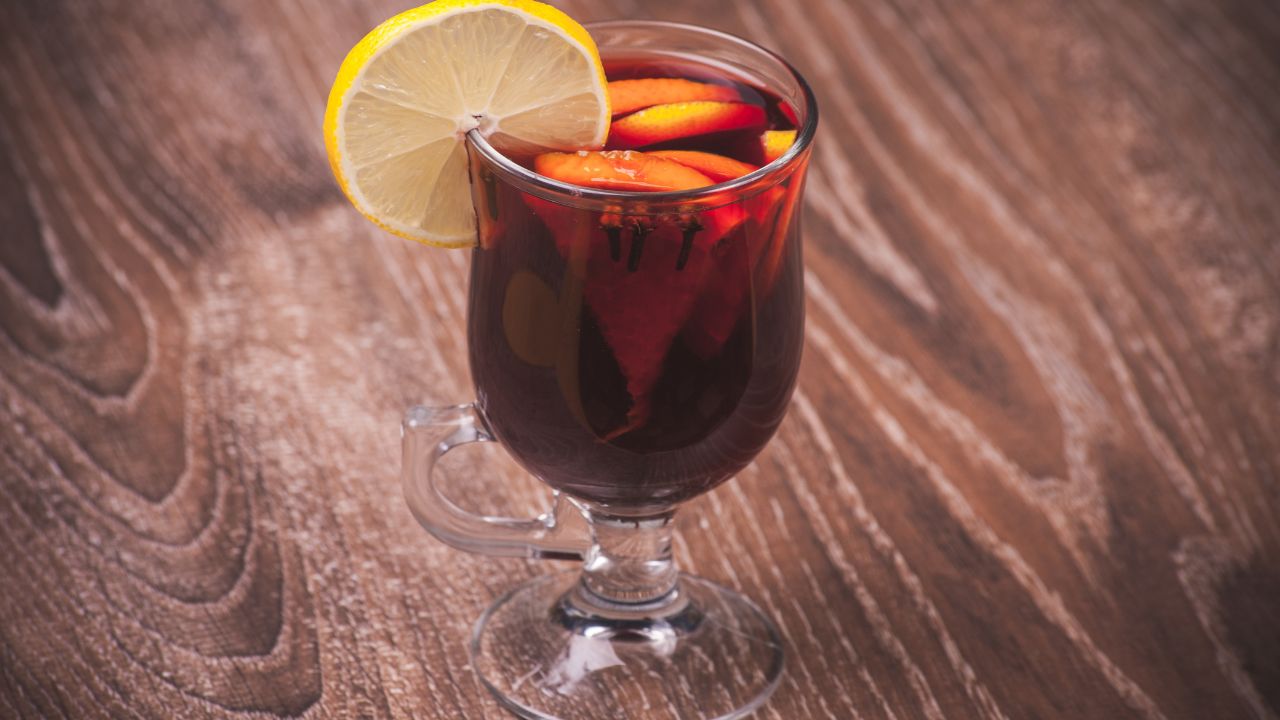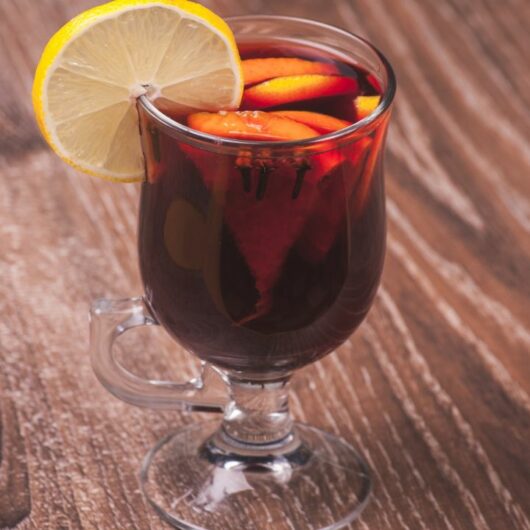From Pilsner to Weissbier, Germany is well-known for its traditional beer which is celebrated during Oktoberfest.
That’s not all Germany has to offer in terms of beverages as there are wines but also several cocktails and mixtures that are well worth trying.

A few of their concoctions are not that common yet can be created with just a few ingredients.
You may even want to host a German-themed party to try them.
In this guide, we will present ten traditional German drinks that you will want to try. We will also include a bonus section dedicated to festive drinks.
1. Radler
Radler is a simple drink to create yet is so quintessentially German and originates from Bavaria.
This is a truly refreshing drink that you will not be able to get enough of during summer.
If you enjoy shandy then a Radler can be a great option to have.
Even though the drink is simple, you should use a German lager like a Pilsner or a Munich Helles to go into equal parts of chilled sparkling lemonade served with a rosemary sprig or lemon slice for a garnish.
2. Kiba
Kiba is a German smoothie that you can easily create by blitzing a frozen banana with a fresh banana and almond milk.
Pour the mixture into glasses then blitz another frozen banana with pitted cherries and almond milk then pour that layer on top.
3. Spezi
Like Radler, Spezi only uses two ingredients to create a refreshing beverage.
Measure out two parts of cola with one part of sparkling orange juice then mix and serve chilled.
4. Afelschorle
Afelschorle is a German version of an apple spritzer and is a refreshing drink to go with pretty much any meal.
You can create an alcoholic version with cider but traditionally you should combine equal parts of apple juice with carbonated water.
5. Altbierbowle
For a beer-based drink, create some Altbierbowle.
You will need some Altbier which comes from Düsseldorf and can be seen as in between an ale and a lager.
First, pour some Altbier into a bowl then mix with your favorite fruit syrups and slices of fruit like strawberries and raspberries.
6. Savoy Affair
An especially fruity cocktail is a Savoy Affair which has a lime sugar rim.
Combine peach brandy, passionfruit juice, strawberry liqueur, and lime juice in a double-cocktail glass then top with Champagne.
7. Kirsch Rose Cocktail
Though Kirsch is a German ingredient made from morello cherries, a single sip of this Kirsch Rose Cocktail should transport you to Paris.
The concoction has a delicious aroma and a feminine touch that you will want to take your time over.
To make one, combine an ounce each of grenadine and dry vermouth with one and a half ounces of Kirsch in an ice-filled cocktail shaker.
Shake vigorously and then pour into a chilled glass and garnish with a maraschino cherry.
8. Hugo Cocktail
When you call for a Hugo in Germany, you should get a crisp and refreshing drink which is effectively a champagne apéritif.
In some ways, a Hugo is close to a Mojito in that mint leaves are muddled with lime slices at the start of the drink’s preparation.
The difference comes from the next two ingredients as, first, elderflower syrup is added.
Next, add Champagne and sparkling water for those crucial bubbles, add ice, and use a mint leaf and a slice of lime for garnishes.
9. Gin Basil Smash
The Gin Basil Smash is a relatively new German drink having been created at Le Lion in Hamburg as recently as 2008.
This is a simple yet beautifully stylish cocktail that makes some great use of fresh herbs.
Again, herbs are muddled with citrus and, in this case, basil leaves are muddled with lemon juice and simple syrup in a cocktail shaker.
Gin and ice are then added to be vigorously shaken until chilled, then the mixture is strained into an ice-filled old-fashioned glass and a basil sprig is used as a garnish.
10. Swimming Pool
Of course, you will want to try one of these sitting next to the swimming pool and it resembles a German version of the Piña Colada.
You can easily create a batch of this as it uses equal parts of white rum, vodka, pineapple juice, coconut cream, heavy cream, and blue Curaçao.
Leave the blue Curaçao on the side as you shake the other ingredients with ice in a cocktail shaker.
Pour the mixture into a tall glass filled with crushed ice and then add the blue Curaçao and watch the colors transform then add a pineapple wedge as a garnish.
Bonus Section: Festive Drinks
When it comes to festive drinks, there are certain traditions that are upheld in Germany.
From a serving of Glühwein to their version of eggnog known as Eierlikör.
Germans also look out for teetotalers and designated drivers with a non-alcoholic drink that is close to Glühwein which is Kinderpunsch.
Glühwein
There should be a rule imposed that households simply have to serve a batch of German Glühwein during the festive season.
The drink loosely translates to glow wine as it is supposed to provide a warm glow to whoever sips it.
You will need a few ingredients so remove the zest from an orange in strips then juice the orange.
Combine water and sugar in a saucepan and boil until the sugar has dissolved then reduce the heat and add cinnamon sticks, cloves, star anise, orange juice, and the orange zest strips.
Simmer the mixture until a syrup forms then reduce the heat even more and add a bottle of wine.
Do not let the mixture reach a full simmer as the alcohol will begin to evaporate so keep it on a low simmer for around 20 minutes.
Strain the mixture into mugs and you can add a shot of amaretto or rum before adding orange peel as a garnish.
Kinderpunsch
Kinderpunsch is essentially a non-alcoholic festive punch that is similar to Glühwein.
In a slow cooker, combine cherry juice with apple cider, orange juice, and water then add cinnamon sticks, cloves, and star anise.
After a few hours of cooking, add tea bags to steep then add sugar to taste.
The slow cooker can be kept on warm while you ladle out the Kinderpunsch into mugs.
Eierlikör
Of course, the Germans have their own take on eggnog and it is not that different from a traditional serving.
It still includes raw egg yolk and sugar so you may want to try this one as a nice festive change.
First, separate the eggs so that you have four egg yolks then add a cup of powdered sugar with half a teaspoon of vanilla extract to cream with a whisk.
Gradually incorporate half a cup of whipping cream into the mixture while whisking then add a third of a cup of rum.
Transfer the mixture to a hot water bath on top of a stovetop and maintain whisking until the mixture thickens.
Try to make sure that the temperature of the mixture hits 160°F then pour into glasses to drink straight away while warm.
If you have used fresh eggs, you can refrigerate the mixture for a few months.
Final Thoughts
When you do want to get close to German culture, a lot of it does revolve around their beer-creating heritage.
There is a level of variation specifically including the beer which could be an Altbier from Düsseldorf, a Kölsch from Cologne, a Berliner Weisse, or a Hefeweizen from Bavaria.
You can include Oktoberfest in that assessment yet there are several other drinks to try that can tell you more about Germany.
Their drinks are as varied as their landscapes and you can expect certain drinks to be available only in certain provinces.
Then again, you should try to make room for a Riesling wine, a Hugo cocktail, and a Kirsch Rose Cocktail which should be available across the country though you can find the wine across the globe or the ingredients to make the cocktails.
Frequently Asked Questions
It may come as some surprise that the most popular beverage in Germany is not beer, it is not even wine.
While Germans are known for their alcohol and many enjoy fizzy drinking water, it is a still drink that is their most popular beverage.
That’s because mineral water is the most consumed and purchased beverage in Germany.
Other drinks to rank highly include caffeinated coffee and fruit juices.
While Germans may enjoy a glass of beer or wine during their evening meal, they tend to go for something stronger after their dinner.
Germany remains a largely beer-drinking country yet in terms of after-dinner drinks, many reach for the top shelf for liqueurs.
Bittersweet liqueurs are common as well as eau de vies, which are spirits made from fruit.
- 15 Traditional Greek Breads - July 31, 2023
- 30 Delicious And Gluten-Free Cookie Recipes - July 29, 2023
- 30 Of The Best European Desserts - July 29, 2023

